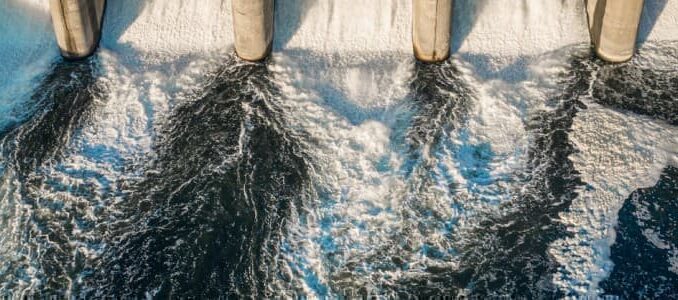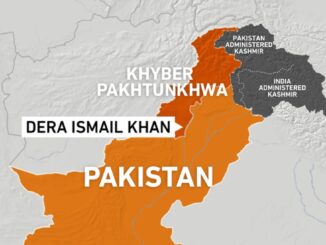
- The proposed dam on the Kunar River, a crucial water source for Pakistan, lacks a bilateral water-sharing agreement between the two nations.
- Pakistani officials have expressed strong opposition to the project, considering it a hostile act with potential for escalating tensions and conflict.
- Despite expert opinions suggesting a minimal impact on water flow to Pakistan, the project underscores the delicate balance of regional water resources and political relations.
Plans by the Afghan Taliban to build a hydroelectric dam on a major river in eastern Afghanistan has raised concerns in neighboring Pakistan.
A spokesman for the Taliban’s Water and Energy Ministry said on December 18 that the “survey and design of the project are complete.” Matiullah Abid told RFE/RL’s Radio Azadi that construction of the dam on the Kunar River would begin when “funds are available.”
A Pakistani provincial minister said the unilateral decision by the Taliban to build the dam “will be considered a hostile act against Pakistan.”
Jan Achakzai, the provincial information minister in the southwestern province of Balochistan, warned of “severe consequences,” including “escalating tensions and potential conflict.”
The 480-kilometer-long Kunar River originates in the Hindu Kush mountains in northeastern Afghanistan and merges with the Kabul River before flowing downstream into Pakistan.
Why It’s Important: Afghanistan’s rivers are a significant source of fresh water for Pakistan. But the two neighbors have never signed a bilateral water-sharing agreement.
Disputes over Kabul’s plans to build dams on major rivers, which would reduce the flow of water to Pakistan, threaten to be a source of tension and conflict between the two countries.
The planned hydroelectric dam on the Kunar River is the latest ambitious infrastructure project undertaken by the cash-strapped Taliban government, which remains internationally unrecognized.
Experts said the extremist group lacks the expertise and finances to fund the project. “Constructing dams requires technical know-how, a robust supply chain, and a lot of money,” said Najib Aqa Fahim, an Afghan water-management expert.
Najibullah Sadid, another Afghan water expert, said the dam on the Kunar River is relatively small and will not threaten water flows to Pakistan.
“Pakistani officials are exaggerating the dam’s impact,” he told Radio Azadi. “It will be a small dam aimed at generating electricity, which will store little water.”
What’s Next: The Taliban’s hydropower plans could exacerbate tensions between the Afghan Taliban and Pakistan.
The longtime allies have fallen out over the Afghan extremist group’s alleged sheltering of the Tehrik-e Taliban Pakistan (TTP) militant group, which has waged a yearslong insurgency against Islamabad.
Pakistan has been accused of using pressure tactics to force the Taliban to sever ties with the TTP, including by expelling hundreds of thousands of Afghan refugees from Pakistan, shutting key border crossings, and blocking Afghan transit goods in recent months.
What To Keep An Eye On
It has been one year since the Taliban banned women from attending all public and private universities in Afghanistan, in a move that attracted widespread condemnation.
Afghan women, speaking to Radio Azadi, described the toll of the ban. “When I see boys continuing their education, I lose all hope and wish that I was not born a girl,” said Spozhmai, who was a medical student in Kabul.
Saira, a medical student in the western city of Herat, said she cannot bear seeing her male classmates graduate, while she was largely confined to staying at home.
Why It’s Important: Despite growing international pressure, the Taliban appears unlikely to reverse its severe restrictions on female education.
The extremist group has also banned girls above the sixth grade from attending school.
Without lifting the restrictions, the Taliban is unlikely to gain international recognition or legitimacy among Afghans.
By RFE/RL





